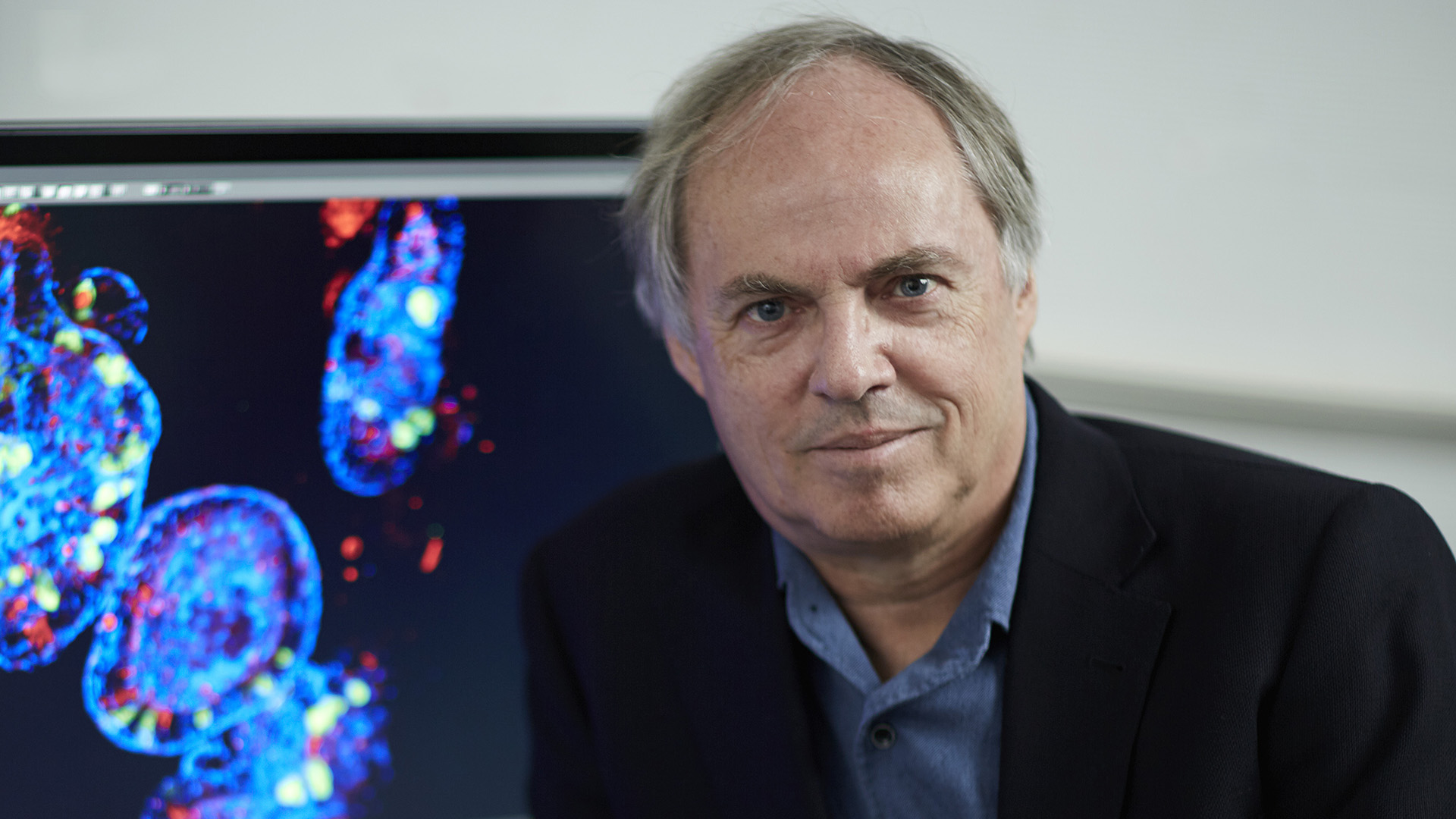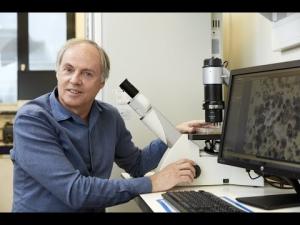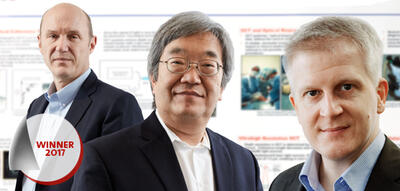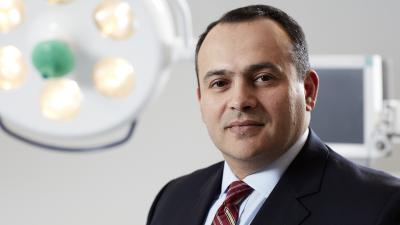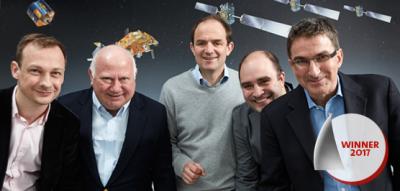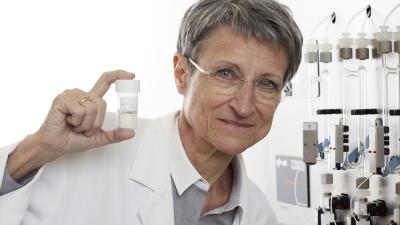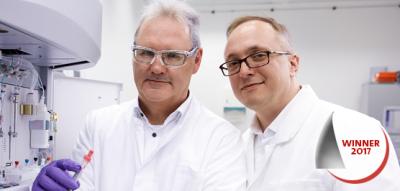Hans Clevers
Lab-grown human organs (organoids)
Finalist for the European Inventor Award 2017
Hans Clevers arrived at the breakthrough after a decade of studying the intestinal tract's remarkable ability for self-repair. The researcher had long suspected intestinal stem cells were key drivers of gut regeneration. He became the world's first scientist to locate a class of these stem cells, known as LGR5 stem cells, inside glands (or "crypts") within the intestinal lining. After pioneering a genetic technique to grow LGR5 stem cells in the laboratory, Clevers was able to develop "intestinoids" that could be used to test drugs safely on active human intestinal tissue.
A few millimetres in size and grown over the course of ten days, these mini-organs have opened the door to growing other "organoids" in the laboratory, including human brains, livers and kidneys. The main area of impact lies in both pharmaceutical development and personalised medicine. The technique also allows replicas of cancerous tumours, called "tumouroids", to be grown in order to pretest hundreds of different drug regimens in vitro (outside the human body).
Societal benefit
The advantages of the patent-protected invention are twofold. Firstly, organoids allow health care providers to test even aggressive courses of treatment - for instance against cancer - without harming the patient. It is estimated that 5% of all hospital admissions in the EU are due to an adverse drug reaction, which could be avoided with organoids. Adverse drug reactions are also the fifth most common cause of hospital death.
Secondly, organoids allow for a "personalised medicine" approach to treatment, as they are uniquely matched to the genetic make-up of one patient only. The personalised medicine unlocked by the invention opens a new chapter in pharmaceutical testing, because the current practice of clinical patient trials gauges the effects of drugs only on populations, not on individual patients.
Clevers' invention also enables new forms of cancer therapy by growing replicas of cancerous tumours, called "tumouroids", to allow the effects of potential therapies to be tested in a safe environment.
Furthermore, organoids offer a viable alternative to animal testing in drug research - desirable from an ethical perspective and also because responses to drugs vary significantly between animals and humans.
Economic benefit
Although only slowly gaining market traction, organoids have the potential to significantly lower both costs and failure rates in drug development. As a current study by Excel Matrix points out, investments of several million euros are necessary to develop a new drug, while only an estimated one in 10 000 chemicals that enter the discovery cycle ever reaches the market. The percentage of late-stage clinical failures - currently at 50% in Phase III - is also rising. Organoids offer "test driving" of new drugs with direct feedback, and thus substantial savings.
Bridging the gap between laboratory and clinical practice, Clevers has co-founded two successful spin-off companies: U-BiSys BV in 1996 (now Crucell, a division of Johnson & Johnson) and Semaia Pharmaceuticals GmbH & Co. KG in 2000 (now Hybrigenics SA).
Analysts regard organoids as potential game-changers in the world market for 3D cell cultures. While the segment achieved sales of around EUR 560 million in 2014, wider availability of organoids is expected to propel the market to EUR 2 billion by 2019, with a compound annual growth rate of 30%.
How it works
Hans Clevers' organoids were first grown in a laboratory Petri dish out of stem cells biopsied from the small intestine of individual patients. The major challenge consisted in sustaining stem cell growth outside the human body, a feat deemed impossible by scientific consensus prior to the inventor's breakthrough.
Solving the problem, the invention enables stem cells to continue dividing - and thereby growing - into miniature clones of their "mother organs". The key is surrounding them in cultures of "bio gel" that simulate the physical characteristics of the human intestine and also provide structural support.
Rapid growth in this environment for about ten days transforms the stem cells into "organoids", a few millimetres in size. Further research has revealed that the technique will also grow mini-organs from liver, brain and kidney stem cells.
The inventor
A rare combination of physician and laboratory scientist, Johannes ("Hans") Carolus Clevers received his PhD in Immunology from Utrecht University in 1985, and simultaneously studied medicine, receiving an MD in 1984. After completing his postdoctoral research between 1986 and 1989 at the Dana-Farber Cancer Institute at Harvard University, Clevers established his own laboratory for genetic research at Utrecht University. Between 2002 and 2012 he served as Director of the Hubrecht Institute for Stem Cell Research. During this time, his focus shifted to gastroenterological research, and his laboratory achieved ground-breaking insights into the cellular mechanisms behind colorectal cancers. In 2009 he developed the world's first "intestinoids" for testing drugs on active human intestinal tissue.
With a research career spanning over 30 years, during which he authored more than 540 publications, Clevers is recognised as an international authority in his field. An avid proponent of improving treatment outcomes with personalised genetics, Clevers is currently recruiting cystic fibrosis patients in the Netherlands for an intestinoid therapy programme.
Today, Clevers is a professor at Utrecht University, and has been serving as Research Director of the Princess Máxima Center for Pediatric Oncology since 2015. His contributions to stem cell-based medicine, oncology and genetic research have been recognised with numerous awards, including the Louis Jeantet Prize (2004), the Heineken Prize for Medicine (2012) and the Breakthrough Prize in Life Sciences (2013).
Did you know?
The human intestinal tract is a self-repair miracle. Every two to five days, the intestines regenerate their entire surface area with brand-new cells. No other organ comes close, and scientists have long suspected that intestinal stem cells are the engines behind self-repair.
Now that Hans Clevers has discovered LGR5 stem cells, their regenerative power could be harnessed to fulfil a bold vision. Science fiction films such as The Island (2005) and Repo Men (2010) could only paint the idea on the silver screen. However, this vision could one day be developed in a lab: genetically-matched donor organs grown outside the human body for specific individual recipients, ready whenever the need for a transplant arises.
Asked about the prospects of healing humans with laboratory-grown intestines, livers and kidneys, the inventor is optimistic. Clevers and his team have already "patched up" cancerous intestines in mice with healthy lab-grown cells, and he hopes that transplanting organoids will become reality in the next five years. For Clever, it would be a further milestone in a life rich in inventions.
Inventors revisited
In 2020, the EPO reconnected with former finalists and winners for their views on trends in innovation and intellectual property, and a rare glimpse at cutting-edge new research and inventions.

The future of life science research
The organoids invented by Hans Clevers are used to conduct safe and humane research in fields ranging from cancer treatments to antivenom production, and from personalised medicine to the novel coronavirus. Professor Clevers has advanced his technology even further and may soon use organoids in human transplants.
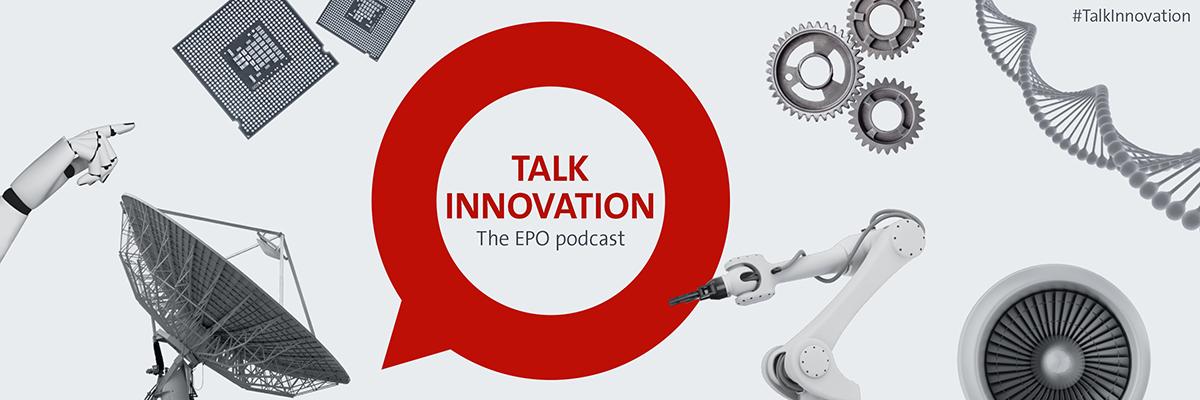
Talk innovation
The concept of growing mini human organs in a lab would once have seemed far-fetched. But Hans Clevers changed all that. Today, the organoids he invented are used to conduct safe and humane research in fields ranging from cancer treatments to anti-venom production, and from personalised medicine and the coronavirus.
Media gallery
Contact
European Inventor Award and Young Inventors Prize queries:
european-inventor@epo.org Subscribe to the European Inventor Award newsletterMedia-related queries:
Contact our Press team#InventorAward #YoungInventors
